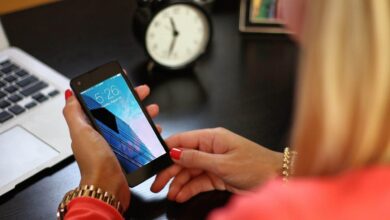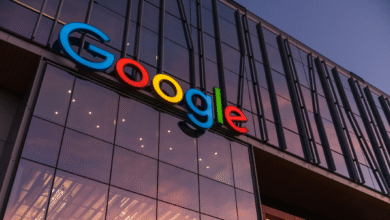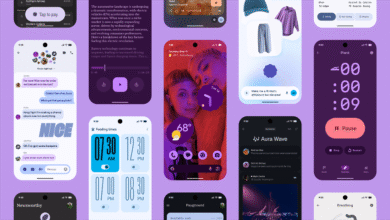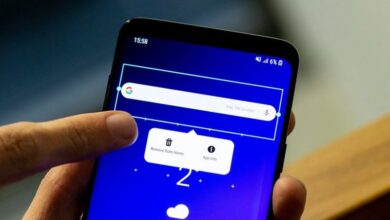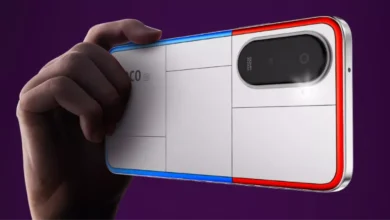Google Pixel 8 and Pixel 8 Pro: The future of full-time desktop replacements?
Exploring the potential of Google's flagship smartphones as desktop replacements and their rivalry with Samsung DeX.
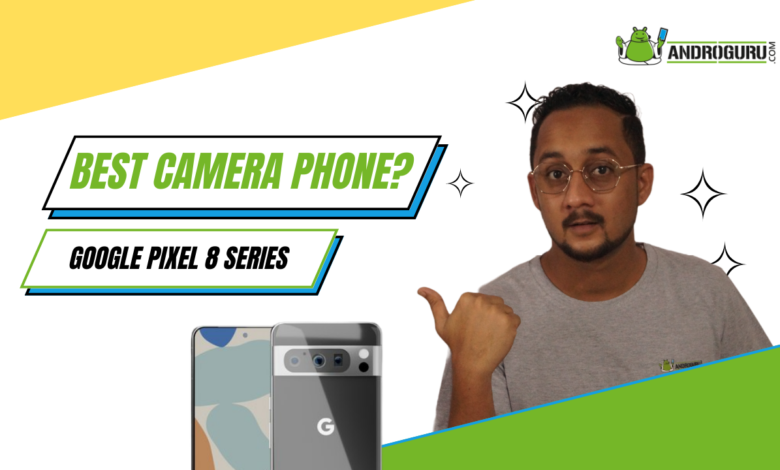
In recent years, smartphones have evolved into powerful devices capable of handling various tasks beyond traditional mobile usage. Google, known for its innovation, is reportedly taking a leap forward with its upcoming flagship smartphones, the Google Pixel 8 and Pixel 8 Pro.
According to emerging reports, these devices have the potential to serve as full-time desktop replacements, giving rise to an exciting new chapter in mobile technology. In this article, we delve into the details and discuss the possibilities these devices hold as well as their rivalry with Samsung DeX.
The Rise of Desktop Replacements
With advancements in smartphone technology and the growing demand for portability, the concept of using smartphones as desktop replacements has gained traction. The Google Pixel 8 and Pixel 8 Pro aim to take this concept to new heights, offering a seamless transition between mobile and desktop experiences.
No longer limited to traditional mobile tasks, smartphones are increasingly being seen as powerful devices capable of replacing desktop computers for certain tasks. This concept, known as desktop replacement, has gained popularity due to advancements in smartphone technology and the increasing demand for portability and convenience.
- Advancements in Hardware: Smartphones today boast impressive hardware specifications, often rivaling those of traditional desktop computers. Processors have become more powerful, RAM capacities have increased, and storage options have expanded. These advancements enable smartphones to handle demanding tasks with ease, making them viable candidates for desktop replacement.
- Mobile Operating Systems: Modern mobile operating systems, such as Android and iOS, have evolved to provide a user-friendly interface and a wide range of productivity features. With intuitive multitasking capabilities, efficient file management systems, and access to a plethora of productivity apps, mobile operating systems have bridged the gap between mobile and desktop computing.
- Connectivity and Portability: Smartphones are inherently portable devices, allowing users to carry their computing power wherever they go. With the advent of wireless technologies like Wi-Fi and Bluetooth, it has become easier than ever to connect smartphones to external displays, keyboards, and mice, effectively creating a desktop-like setup.
- Cloud Storage and Synchronization: The rise of cloud storage services has revolutionized the way we store and access our files. With seamless synchronization across devices, users can effortlessly access their documents, photos, and other data from both their smartphones and desktop computers. This synchronization further blurs the line between mobile and desktop computing, making the transition seamless.
- Increasing Productivity Apps and Software: App developers have recognized the demand for productivity tools on smartphones, leading to the development of robust applications for tasks like document editing, spreadsheets, presentations, and note-taking. These productivity apps provide users with a comprehensive suite of tools to accomplish their work on a smartphone, reducing the dependency on traditional desktop software.
- Flexibility and Versatility: Desktop replacements offer users the flexibility to switch between mobile and desktop environments effortlessly. They can handle work-related tasks on their smartphones while on the go and seamlessly transition to a larger display for more intensive work sessions. This flexibility allows for increased productivity and adaptability to different working conditions.
Unveiling the Powerhouse
The Google Pixel 8 series is rumored to boast impressive specifications, including cutting-edge processors, ample RAM, and spacious storage options. This hardware prowess, combined with Google’s optimized software, promises to deliver a desktop-like experience, empowering users to perform productivity tasks with ease.
What sets these devices apart from their predecessors is their potential to serve as full-time desktop replacements. Recent reports and leaks suggest that Google has made significant advancements in hardware and software, aiming to rival the likes of Samsung Dex and revolutionize the concept of mobile computing.
- Powerful Hardware: The Pixel 8 series is expected to boast top-of-the-line hardware specifications, ensuring smooth and efficient performance for a desktop-like experience. With powerful processors, ample RAM, and generous storage options, these smartphones have the potential to handle resource-intensive tasks that were once reserved for traditional desktop computers.
- Enhanced Software Integration: Google has been investing heavily in optimizing its mobile operating system, Android, for a seamless desktop experience. The Pixel 8 and Pixel 8 Pro are likely to come with enhanced software integration, offering users a familiar desktop environment with features like multi-window support, taskbar, and improved file management. This integration will allow users to effortlessly switch between mobile and desktop modes, further blurring the lines between the two.
- Desktop-Like Connectivity: Connectivity plays a crucial role in the transition from a smartphone to a desktop replacement. The Pixel 8 series is expected to support a range of connectivity options, including USB-C, wireless display mirroring, and Bluetooth peripherals. These features will enable users to connect their smartphones to external monitors, keyboards, and mice, transforming their mobile device into a full-fledged desktop setup.
- Productivity-Focused Apps and Services: Google has been expanding its suite of productivity-focused apps and services, catering to the needs of professionals and power users. With robust offerings like Google Docs, Sheets, and Slides, as well as cloud storage and collaboration tools, the Pixel 8 series is poised to provide a comprehensive productivity ecosystem. Users can expect seamless synchronization between their smartphones and other devices, ensuring a cohesive workflow across platforms.
- Versatility in Work Environments: The Pixel 8 and Pixel 8 Pro’s ability to serve as desktop replacements offers users unparalleled versatility in various work environments. Whether working remotely, on-the-go, or in a shared office space, users can easily adapt to their surroundings. The convenience of having a powerful desktop experience in a portable device empowers professionals to be productive regardless of their location.
- Future-Proofing and Updates: Google has committed to providing regular software updates for the Pixel 8 series, ensuring users have access to the latest features and security enhancements. This future-proofing approach not only enhances the device’s longevity but also keeps it in line with evolving industry standards, making it a worthy investment for long-term use as a desktop replacement.
Desktop Mode and Multitasking
One of the key features speculated to be present in the Pixel 8 devices is a dedicated desktop mode. This mode would enable users to connect their smartphones to external displays, keyboards, and mice, transforming them into a fully functional desktop setup. Multitasking capabilities, such as running multiple apps simultaneously and drag-and-drop functionality, could further enhance productivity.
Seamless Integration with Google Services
Google’s ecosystem, encompassing services like Google Drive, Docs, Sheets, and Slides, is already widely used for productivity purposes. The Pixel 8 series is expected to offer deeper integration with these services, enabling users to seamlessly access and work on their files, just as they would on a traditional desktop.
The Rivalry with Samsung DeX
Samsung has been a frontrunner in the desktop replacement game with its DeX platform. The Google Pixel 8 and Pixel 8 Pro could potentially pose a healthy rivalry to Samsung DeX, offering users an alternative and perhaps a more seamless experience. Competition between the two giants is likely to drive innovation and further enhance the capabilities of mobile-to-desktop transitions.
The Google Pixel 8 and Pixel 8 Pro are poised to redefine the boundaries of what smartphones can achieve. With their rumored desktop mode, powerful hardware, and integration with Google services, these devices have the potential to serve as full-time desktop replacements, providing users with a versatile and efficient computing experience.
As the rivalry with Samsung DeX intensifies, users can look forward to witnessing further advancements in this domain. The future of mobile computing is on the horizon, and the Google Pixel 8 series could be at the forefront of this revolution.








